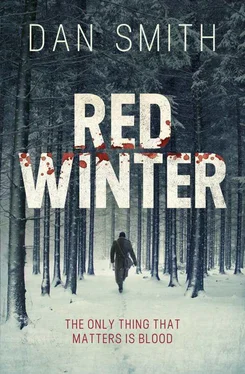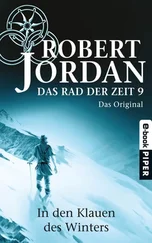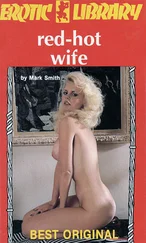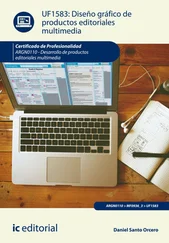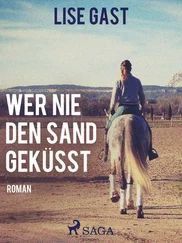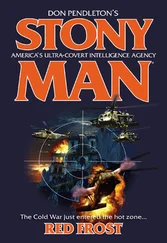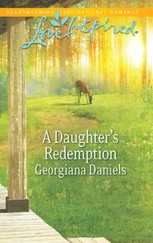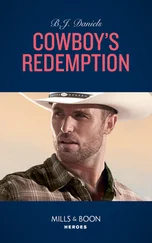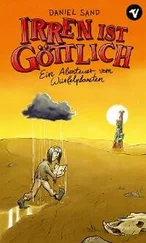By dawn, it was freezing inside the house. The walls retained some of the heat, but the night had been harsh, and when I dared look from the window, a thick frost had grown across the land. There was great beauty in it. The sparkle of the weak winter sun on the dappled layer of crystal. The dusting on the roofs of the houses and the dark trees beyond the river. The sails of the windmill glistened, and the mud in the road had frozen hard in peaks. Last night’s faint mist still swirled in the air as if I were seeing the world through cataracts.
My breath steamed against the window as I watched the morning rise and wondered at the strangeness of the world. The country was turning against itself, filled with anger and confusion. Men killed men, brutalised women and children, looked for ways to maim and destroy. There were fields where a thousand bodies lay frozen in death, yet the world seemed not to notice. The sun still rose, the frost still came, the rivers still flowed, and the dark forest still watched. When we were all gone, buried or burned, the trees would live on without us, watching the next generation grow in the place where the last had fallen. The river would give life to new people, the fields would feed them, and the sun would warm them in the summer. It didn’t make any difference what we did. We were only here for a few moments and all that mattered was making those small moments bearable; being where we wanted to be.
I wrapped my arms around myself and turned to look down at my brother.
‘The ground will be hard,’ I said.
Outside, the frost touched everything. It glittered on the steps and took on the prints of my boots when I went down onto the road. The air was fresh, and the wind carried a purity, as if it might be able to wipe everything clean with its freezing breath. It pinched at my cheeks and froze the hairs in my nostrils.
I looked each way along the road, but the village was as deserted as it had been when I arrived, so I went round the back, crunching the hard frost as I crossed the yard towards the outbuilding. I had to tug hard to pull open the door, which had frozen in place.
Kashtan nickered as I came in, and she moved over to greet me. The inside of the shed was warm, she had left her smell in there, and it gave me a good feeling to be close to her. Her bright chestnut coat was alive and vibrant, while everything else around me was grey and stripped of life.
I rubbed her nose and put my face against it, taking a deep breath and closing my eyes. I imagined climbing onto her right then, riding away from the silent village and whatever horror waited in the forest, but I couldn’t leave without checking for any sign of where Marianna and the others might be.
Something was attracting the crows; something more than a single beheaded man.
If I found nothing, I would head north to Dolinsk on the only track from the village and put my faith in God or fate or whatever it was that had so far forsaken me, but I had to look.
And I had another duty to perform. I had to bury my brother.
‘You stay here, Kashtan. I won’t make you carry him again. I have to do this. It’s my turn.’
Returning to the izba , I took Alek under the arms and hefted him up. For a moment we were face to face, almost as if we were about to embrace one another, and strong memories flooded me, making me pause to look at his face, to remember him as he had been. The older brother I had loved and hated as a child, just as brothers do.
I saw the sharp whiteness of the scar over his blanched upper lip, where he had fallen against the fence when he was eleven years old. The mottled marks on his neck caused by shrapnel he took in the Great War. His hair cut close against his scalp, a perfect job made by the company barber from the army I had encouraged him to join. Alek had wanted to come home then, even though he’d already received a letter about Irina’s passing, but I had persuaded him to join me in the revolution. He probably would have been conscripted anyway, as most men were, but I couldn’t help thinking that I had brought him to this.
‘I’m sorry,’ I said. Then I put him over my shoulder and stumbled and staggered along the road with him on my back. His joints were stiff, and his muscles were hard, and he seemed to weigh even more today. I fell to my knees in the frozen mud and dropped my brother more than once, and when I came to the church steps, I rested for a moment before going inside.
The church was hardly a church at all. It had no bell or tower, no cross mounted on its roof. It was little more than a house like all the others, except the door was carved with a crude cross and it was built, if anything, from lighter materials than the other homes – as if the original builders had trusted to God that it would stay warm and not be destroyed by the weather. Even though I had searched it last night, I felt compelled to go in, perhaps to show my brother to whatever remnants of God might be left, before I broke the ground for him and covered him in frozen soil. Or perhaps it was a pilgrimage; a penance for letting him die, just as it had been a kind of penance to carry him here from our home. A way to absolve myself of the guilt I felt for his death.
I struggled with Alek, feeling the pinch in my back as I summoned whatever strength I had to lift him. I crouched and hefted him onto my shoulder, using the fence to help me to my feet, then I stood and took Alek into the church, the door creaking on cold hinges.
Empty chairs faced an altar covered with a threadbare cloth upon which stood two large red candles, one at either end. There was a holder for smaller candles, a pair of icons and a wooden crucifix with three cross-beams. There were other icons on the walls too, faded and cracked, exactly as I remembered them.
I put Alek in front of the altar and took a seat, breathing hard as I fought to regain my breath. Despite the cold, I was sweating under my clothes and I felt the moisture chill on my skin, making me shiver.
‘Not what we were expecting, is it?’ I said aloud. ‘We come all this way, get through so much and…’ I leaned back and looked up at the ceiling. ‘I thought Marianna would be waiting. Misha and Pavel. I should have known.’ I sniffed hard and looked at my brother again. ‘You knew, didn’t you? That’s why you gave up.’
I wished I had never gone to war. I wished I had stayed at home and cherished every moment with my family. Misha was nine years old when I first left, Pavel just seven, and my time with them since then had been limited to that which I was able to spend away from soldiering. The babies I had once cradled with just one hand were now grown almost as tall as their mama, and I had wasted so much of that time.
‘Maybe this is my punishment – to live for this .’ I looked up at the cross. ‘Is that it? Are you punishing me?’
Behind me, the door creaked.
I reached for my weapon and turned to see a figure standing silhouetted against the morning. Bulked by a winter coat and hat, rifle in hand, he cut an impressive figure. His breath clouded about his face, and he stood unmoving, watching.
I stayed as I was, one hand on my revolver.
‘What have you done?’
Everything about her demeanour had made me think she was a man. Only when she spoke did I realise that her imposing profile had deceived me. She had the almost lazy bearing of someone who had nothing to lose; someone for whom violence was a part of life. A certainty. And when she took a step into the church, the muzzle of her rifle pointed at the floor, she looked comfortable and without fear. I’d seen young men hold a rifle with trepidation, even after training, but this woman held it like she meant to use it.
‘What have you got there?’ She inclined her head to one side. ‘Behind the seat? You’re armed?’
Читать дальше
